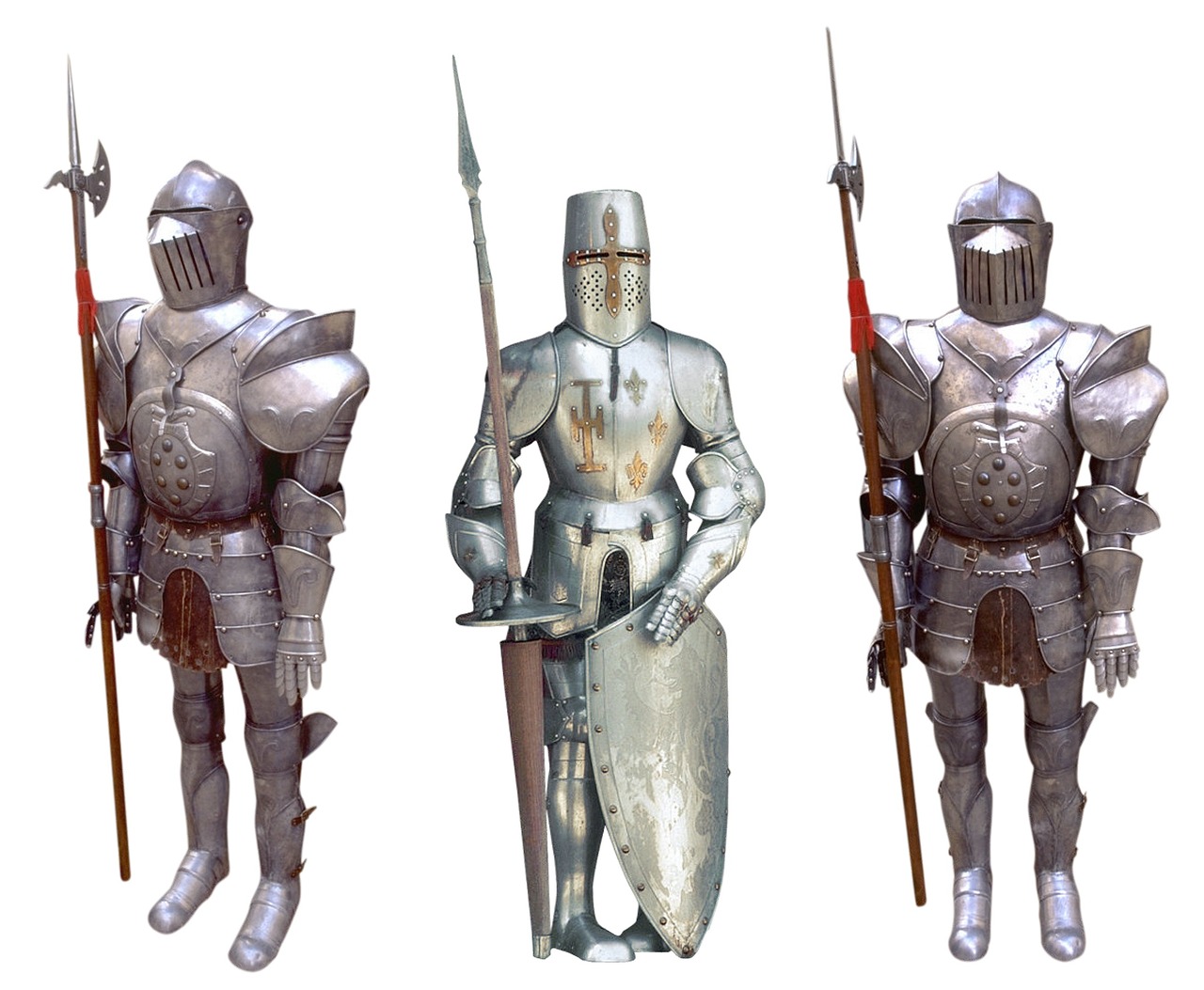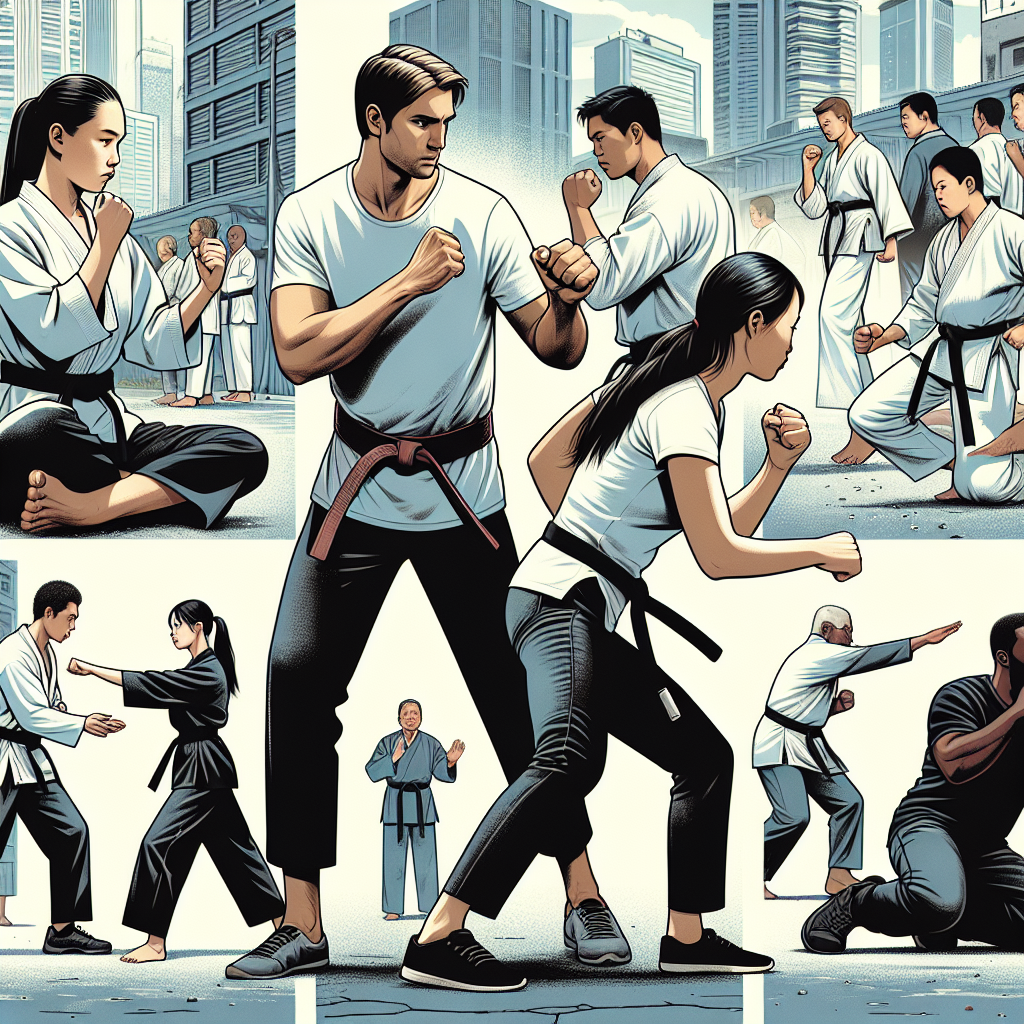In today’s unpredictable world, it is crucial to equip yourself with the necessary skills to protect and defend yourself. The power of awareness is one such skill that can make all the difference in ensuring your safety. By honing your senses and being alert to your surroundings, you can strengthen your self-defense skills and effectively ward off potential threats. This article will explore the importance of awareness and provide valuable tips on how to cultivate and harness it to your advantage. So read on and discover the power of awareness in strengthening your self-defense skills.

The Importance of Self-Defense Skills
Self-defense is a crucial skill that everyone should possess. In today’s unpredictable world, it is essential to be prepared and equipped to protect yourself and your loved ones if necessary. Understanding the need for self-defense is the first step in ensuring your personal safety.
Understanding the need for self-defense
While we all strive to live in a peaceful and harmonious society, the unfortunate reality is that there are instances where our safety may be at risk. Whether it’s a street altercation, a potential assault, or a robbery, being prepared with self-defense skills can make a significant difference in such situations.
Benefits of having self-defense skills
Having self-defense skills offers numerous benefits. Firstly, it enhances your confidence and sense of security. Knowing that you can protect yourself if the need arises boosts your self-esteem and makes you feel empowered. Additionally, self-defense skills improve your physical fitness and coordination. Techniques such as strikes, blocks, and evasion require agility and strength, which can be developed through regular practice.
Furthermore, self-defense skills help improve your mental focus and discipline. The training involved in learning self-defense requires you to be fully present and focused, teaching you to stay calm under pressure and think strategically. Lastly, self-defense skills can significantly reduce the risk of becoming a victim of physical violence. By knowing how to defend yourself effectively, you can deter potential attackers and increase your chances of escaping unharmed.
How awareness enhances self-defense skills
Awareness plays a pivotal role in self-defense. Being aware of your surroundings and potential risks can enable you to anticipate and prevent dangerous situations. Developing awareness involves recognizing potential risks, understanding situational awareness, and sharpening your senses.
Developing Awareness
Recognizing potential risks
To enhance your self-defense skills, you must learn to recognize potential risks in your environment. This includes identifying areas or situations that may be more prone to criminal activity, such as poorly lit streets or isolated locations. By being aware of these potential risks, you can take necessary precautions and avoid putting yourself in vulnerable situations.
Understanding situational awareness
Situational awareness refers to being fully present and attentive to your surroundings. It involves assessing the people, places, and events around you and recognizing any potential threats or danger. By cultivating situational awareness, you can identify signs of potential danger early on, giving you the opportunity to react and protect yourself.
Sharpening your senses
Sharpening your senses is an essential aspect of developing awareness. This involves paying attention to sounds, smells, and physical cues that may indicate danger. For example, listening for footsteps behind you or noticing if someone is following you can give you valuable information about your safety. Training your senses through practice and observation can significantly enhance your ability to anticipate and respond to threats effectively.
Physical Techniques for Self-Defense
While awareness and mental preparation are essential, physical techniques form a crucial aspect of self-defense. Knowing key physical moves, practicing strikes and blocks, and understanding body mechanics are essential to equip yourself with effective self-defense skills.
Key physical moves for self-defense
There are several key physical moves that are effective for self-defense. These include punches, kicks, knee strikes, and elbow strikes. Learning the proper technique and practicing these moves can provide you with the ability to strike with precision and power when necessary.
Practicing strikes and blocks
Regular practice of strikes and blocks is important to develop muscle memory and proficiency. By repetitively practicing these techniques, you can ensure that they become second nature and can be executed effectively in high-pressure situations. Training with a partner or in a controlled environment allows you to simulate real-life scenarios and gain confidence in your abilities.
Utilizing body mechanics
Understanding body mechanics is vital in self-defense. Proper body positioning, balance, and coordination can greatly enhance the effectiveness of your strikes and blocks. By leveraging your body’s natural movements and using techniques such as pivoting, rotating, and weight shifting, you can generate maximum power and efficiency in your self-defense techniques.
Psychological Aspects of Self-Defense
In addition to physical techniques, the psychological aspects of self-defense play a significant role in ensuring your safety. Developing the right mindset and attitude, recognizing and managing fear, and remaining calm under pressure are all crucial psychological skills to cultivate.
Mindset and attitude in self-defense
Having a confident and assertive mindset is essential in self-defense. Believing in your ability to protect yourself and maintaining a positive attitude can significantly impact your effectiveness in confrontational situations. By cultivating a strong mindset, you project an aura of self-assurance that can deter potential attackers.
Recognizing and managing fear
Fear is a natural reaction in threatening situations. However, it is important to recognize and manage fear effectively. Understanding the physiological and psychological effects of fear can help you stay calm and make rational decisions in threatening situations. Breathing techniques, positive self-talk, and visualization exercises are useful tools for managing fear and maintaining composure.

Remaining calm under pressure
Being able to remain calm under pressure is a crucial aspect of self-defense. In high-stress situations, maintaining a clear mind allows you to think critically and react appropriately. Practicing mindfulness and stress-management techniques can help you regulate your emotions and stay focused, even in challenging and potentially dangerous circumstances.
Verbal Self-Defense Skills
Verbal self-defense skills are an integral part of self-defense. Assertive communication techniques, de-escalation strategies, and setting boundaries through verbal cues can help defuse potentially dangerous situations without resorting to physical force.
Assertive communication techniques
Assertive communication involves expressing yourself confidently and effectively while respecting the rights and boundaries of others. By using assertive language, tone, and body language, you can convey your needs, set boundaries, and deter potential attackers. Effectively communicating your refusal or disapproval can help diffuse confrontations and protect your personal safety.
De-escalation strategies
De-escalation strategies aim to alleviate tension and reduce the likelihood of violence. This involves remaining calm, listening attentively, and showing empathy towards the aggressor. By using de-escalation techniques, such as active listening, remaining non-confrontational, and offering alternative solutions, you can potentially defuse a dangerous situation before it escalates.
Setting boundaries through verbal cues
Verbal cues can be powerful tools in setting boundaries and asserting your personal space. By using clear and direct language, such as firmly stating “Stop” or “Back off,” you establish your limits and communicate your unwillingness to engage further. Verbal cues can deter potential attackers and give you the opportunity to remove yourself from the situation.
Using Your Surroundings as Defense
Another essential aspect of self-defense is utilizing your surroundings as a means of defense. Identifying potential weapons in the environment, using common objects for self-defense, and creating barriers and escape routes are all strategies that can enhance your ability to protect yourself.

Identifying potential weapons in the environment
In various situations, everyday objects can be transformed into improvised weapons. By developing an awareness of your environment, you can identify potential weapons that may be readily available. Whether it’s a pen, a key, or a heavy object, having this knowledge allows you to utilize your surroundings to defend yourself if necessary.
Using common objects for self-defense
Common objects can provide you with a means of self-defense when traditional weapons are unavailable. By understanding how to use items such as umbrellas, belts, or even a rolled-up magazine, you can effectively defend yourself and disrupt an attacker’s intentions. Proper training and practice in using these objects are essential for maximizing their effectiveness.
Creating barriers and escape routes
In situations where physical confrontation is unavoidable, creating barriers and escape routes can significantly improve your chances of escaping unharmed. By identifying potential obstacles in your surroundings and utilizing them strategically, you can impede an attacker’s progress and create the opportunity to flee to safety. This could include locking doors, moving furniture to block access, or identifying alternative exit points.
Awareness and Personal Safety Habits
In addition to specific self-defense skills, cultivating awareness and practicing personal safety habits are crucial for ensuring your well-being. Basic safety precautions, developing routines for personal safety, and managing your social media presence are important aspects to consider.
Basic safety precautions
Basic safety precautions are fundamental in protecting yourself. This includes locking doors and windows, being cautious when walking alone at night, and avoiding risky or dangerous areas. Implementing these simple measures significantly reduces the likelihood of becoming a target for criminals.
Developing routines for personal safety
Incorporating personal safety habits into your daily routines can enhance your overall safety. This includes habits such as regularly checking the environment for potential risks, ensuring your phone is fully charged, and sharing your whereabouts with trusted individuals. By making personal safety a routine, you develop a proactive mindset and are better prepared to handle unexpected situations.

Managing social media presence
In today’s digital age, managing your social media presence is an important aspect of personal safety. Sharing too much personal information online can make you an easy target for potential attackers. Limiting the amount of personal information accessible to strangers and being mindful of what you post can significantly reduce the risk of becoming a target.
Self-Defense Training and Education
While acquiring self-defense skills on your own is possible, seeking reputable self-defense classes and training programs can greatly enhance your knowledge and capabilities. Finding reputable self-defense classes, understanding the benefits of formal training programs, and continually seeking self-improvement contribute to the overall effectiveness of your self-defense skills.
Finding reputable self-defense classes
When seeking self-defense classes, it is crucial to find reputable instructors and programs. Look for qualified instructors who are experienced in teaching practical self-defense techniques. Consider their credentials, testimonials, and reviews from previous students to ensure you receive quality instruction.
Benefits of formal training programs
Participating in formal training programs offers several advantages in developing your self-defense skills. These programs incorporate structured curriculums that cover a range of techniques, scenarios, and strategies. They often provide opportunities for practical application through drills and simulations, allowing you to develop skills in a controlled environment. Additionally, training programs offer valuable guidance and feedback from instructors who can help refine your techniques and address any weaknesses.
Ongoing self-improvement and skill enhancement
Self-defense is not a one-time learning process but a continuous journey. To maintain and improve your self-defense skills, it is crucial to seek ongoing self-improvement. This can involve attending advanced training courses, participating in workshops or seminars, and regularly practicing and refining your techniques. By continually challenging yourself and seeking new knowledge, you can stay at the forefront of self-defense techniques and adapt to changing threats.
Mental and Physical Preparation
Self-defense requires both mental and physical preparedness. Regular exercise for self-defense, building strength and endurance, and engaging in mental preparedness exercises are key components in ensuring your readiness to defend yourself if necessary.
Regular exercise for self-defense
Regular exercise is essential for developing the physical fitness required for self-defense. Engaging in activities such as running, swimming, or martial arts training improves your cardiovascular endurance, strength, and flexibility. These physical attributes contribute to your overall effectiveness in executing self-defense techniques.
Building strength and endurance
Building strength and endurance is crucial for self-defense. Strength training exercises, such as weightlifting or bodyweight exercises, help develop the physical power required for strikes and blocks. Endurance training, such as interval training or circuit training, increases your stamina, allowing you to sustain your efforts in a physically demanding situation.
Mental preparedness exercises
Self-defense also requires mental preparedness. Mental exercises, such as visualization, scenario training, and decision-making drills, help improve your mental focus, reaction time, and decision-making skills. By simulating different self-defense scenarios in your mind and practicing your responses, you can enhance your ability to think quickly and effectively in high-pressure situations.
Recognizing Danger Signals and Indicators
The ability to recognize danger signals and indicators is critical for self-defense. Reading body language and non-verbal cues, identifying potential threats in different environments, and trusting your instincts are all skills that can help you stay safe.
Reading body language and non-verbal cues
People often communicate their intentions and emotions through their body language and non-verbal cues. Learning to read these signals can provide valuable insights into a person’s behavior and potential threat level. Signs of aggression, lack of eye contact, or suspicious gestures should raise awareness and prompt you to take appropriate action.
Identifying potential threats in different environments
Different environments present various potential threats that require different responses. Being able to identify potential threats in different settings, such as on the street, in a crowded place, or in your own home, enables you to adapt your self-defense strategies accordingly. Awareness of your surroundings, understanding common tactics used by attackers, and being prepared for different scenarios are essential in staying safe in any environment.
Trusting your instincts
Our instincts are valuable tools in self-defense. Often, our gut feelings or intuition can alert us to potentially dangerous situations before our conscious mind can process the information. Trusting your instincts and listening to that inner voice can provide early warnings and allow you to take preemptive action. Cultivating self-trust and staying connected with your instincts through regular practice and awareness can significantly enhance your self-defense skills.
In conclusion, self-defense skills are crucial for personal safety and well-being. Developing awareness, mastering physical techniques, understanding psychological aspects, and honing verbal and environmental self-defense skills are all essential components in strengthening your self-defense abilities. By investing in training and education, maintaining mental and physical preparedness, and cultivating awareness and personal safety habits, you empower yourself to navigate potentially dangerous situations with confidence, ensuring your safety and that of those around you.






